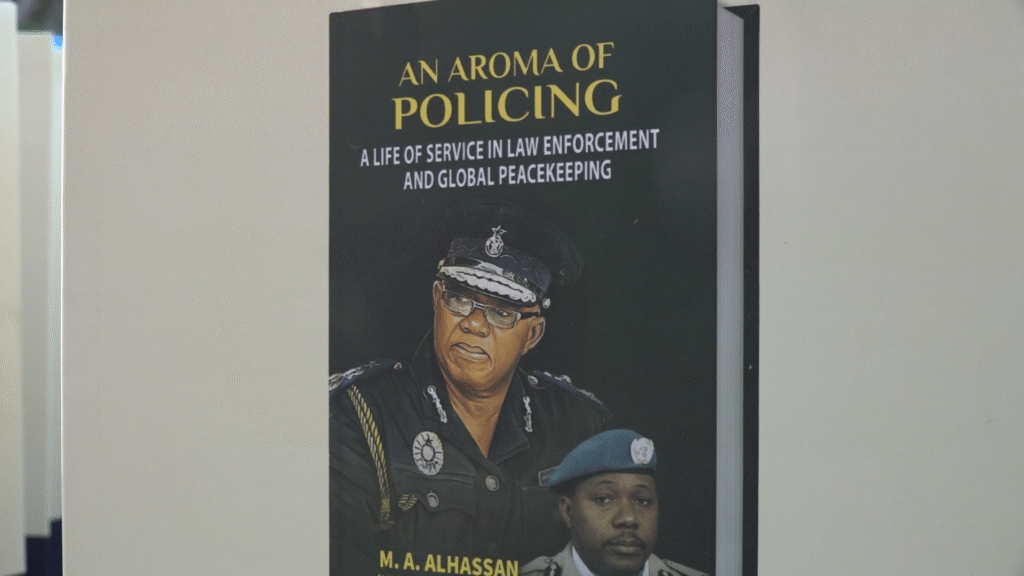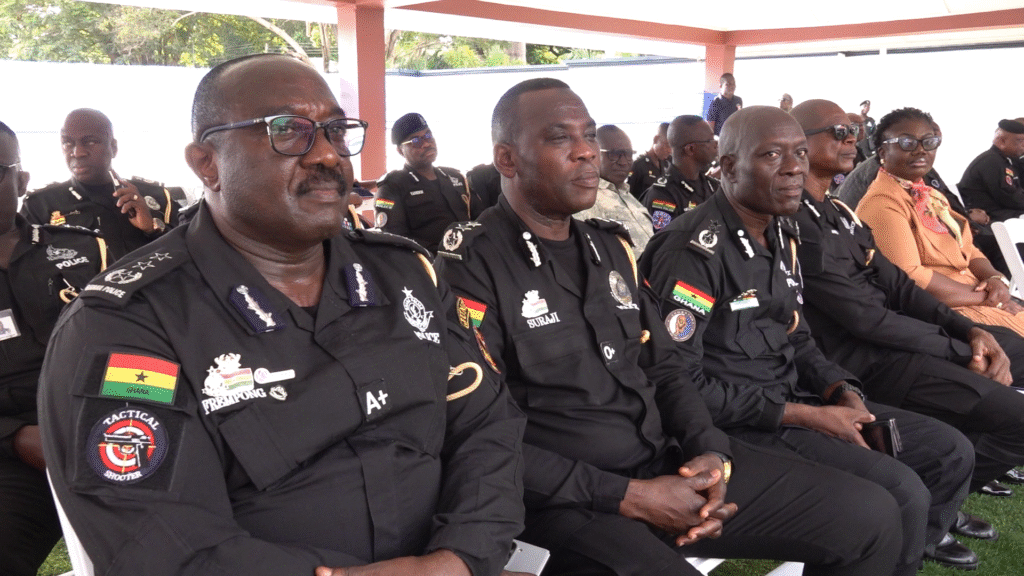
Dr. Antwi-Danso hails former IGP Alhassan’s memoir as “compelling, candid, and critically important” for Ghana’s policing future.
The seasoned academic delivers a detailed and passionate review of An Aroma of Policing, describing it as a “comprehensive mix of autobiography, institutional memory, and strategic blueprint.”
Renowned academic and security analyst, Dr. Vladimir Antwi-Danso, has delivered a glowing and engaging review of An Aroma of Policing: A Life of Service in Law Enforcement and Global Peacekeeping, the memoir by former Inspector-General of Police, Mohammed Ahmed Alhassan.
Speaking at the official book launch in Accra, Dr. Antwi-Danso, who shared a personal connection with the author dating back to their university days at Legon, described the 681-page book as “voluminous but full of sense,” a rich narrative that blends personal experience with institutional critique and reform-minded recommendations.

“The title itself is unique, an aroma, pleasant, compelling, and memorable,” he remarked. “This book is more than a memoir; it’s a journey through the warped contours of policing, the challenges, the triumphs, and the urgent need for reform.”
A Roommate’s Reflections, A Scholar’s Review
Drawing on their shared history from Room L6A4 at the University of Ghana, Prof. Antwi-Danso brought a warm, personal tone to his academic assessment. He noted that while he had originally planned to present a technical literary critique, he instead opted to give readers a “whiff of the aroma” contained in the chapters of the memoir.
“It was a test of both my academic prowess and my absorptive capacity,” he said, “but the book is so well written, simple, compelling, and hard to put down that I read all 681 pages in just eight days.”

A Masterclass in Storytelling and Institutional History
Segmented into 36 chapters, An Aroma of Policing weaves Alhassan’s journey with an insider’s look at the Ghana Police Service (GPS), both past and present. Dr. Antwi-Danso emphasised the author’s own words from the preface as the book’s thematic core: the urgent need to preserve institutional memory and bridge the gap between past and present within the Service.
From the early days of the author’s childhood in police barracks, through his training, postings, and eventual ascent to IGP, the book delivers a tapestry of transformative ideas and decisive action. Chapters 2 to 10 explore Alhassan’s introduction of community policing, first as an experiment, and later as a national policy. Other chapters chronicle his UN missions, the evolution of Ghana’s police reforms, and the creation of strategic institutions such as the Police Staff College and the Formed Police Unit (FPU).
“Woven with Humour, Anchored in Truth”
Prof. Antwi-Danso praised the memoir’s accessibility and vivid storytelling, noting the humour and candour that runs through the narrative. He cited memorable details such as the author’s childhood nickname “Agboneke” and his struggles learning computer skills during his time at the United Nations. “This is not a dry bureaucratic account. It’s alive. It’s honest. And it’s deeply human,” he said.
He also highlighted the author’s critical assessments of the Police Service, particularly around issues of corruption, welfare, and stalled promotions, as valuable institutional feedback that must be acted upon.
“A National Treasure for Policy and Training”
In what he termed the “greatest source material” on policing in Ghana, Prof. Antwi-Danso pointed to Chapters 18 through 25 as essential reading for anyone seeking to understand the structure, function, and evolution of the Ghana Police Service.
“This is not just a memoir. It’s a scholarly work, an administrative guide, and a national policy document. I fully endorse and recommend it for use in police training institutions and security studies. Policy makers will find it of immense value.”
Final Words
Dr. Antwi-Danso concluded his review with deep appreciation for the author’s integrity, leadership, and contribution to national security.
“To understand where we are going, we must understand where we’ve been. This book does that and more. It tells the story of a man, an institution, and a nation in transition. It is a gift to all of us.”
By Peters Quao Adattor








